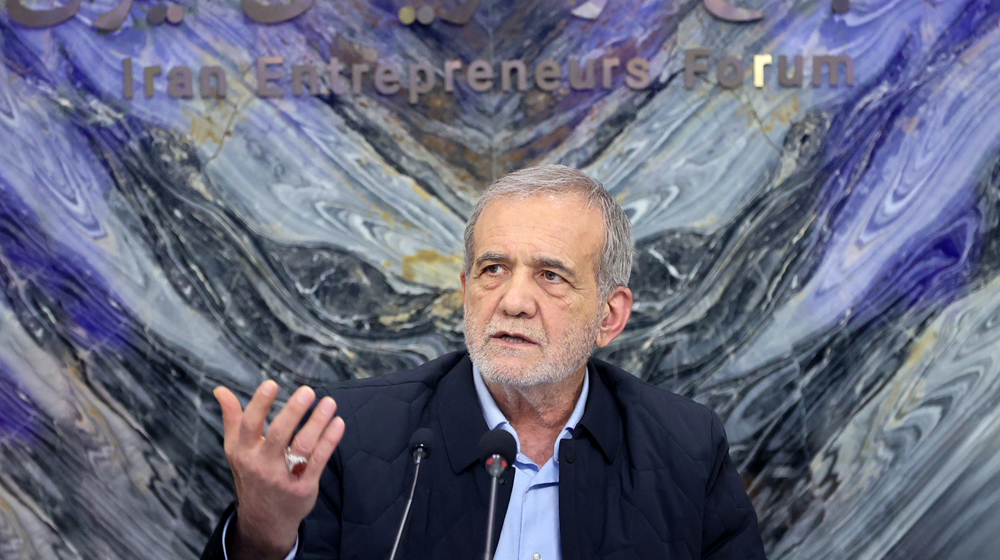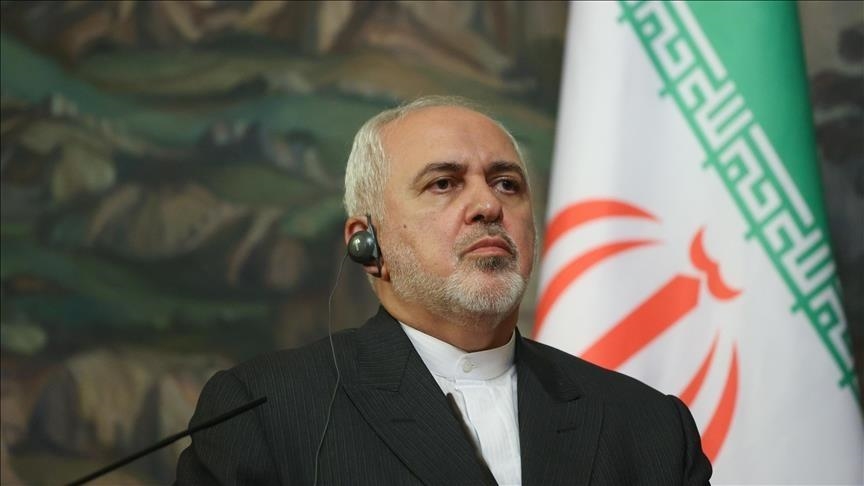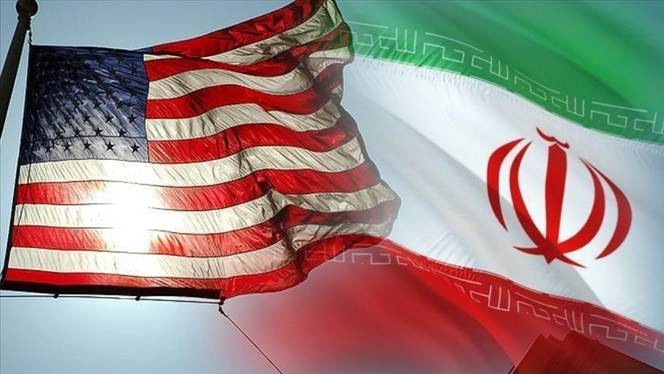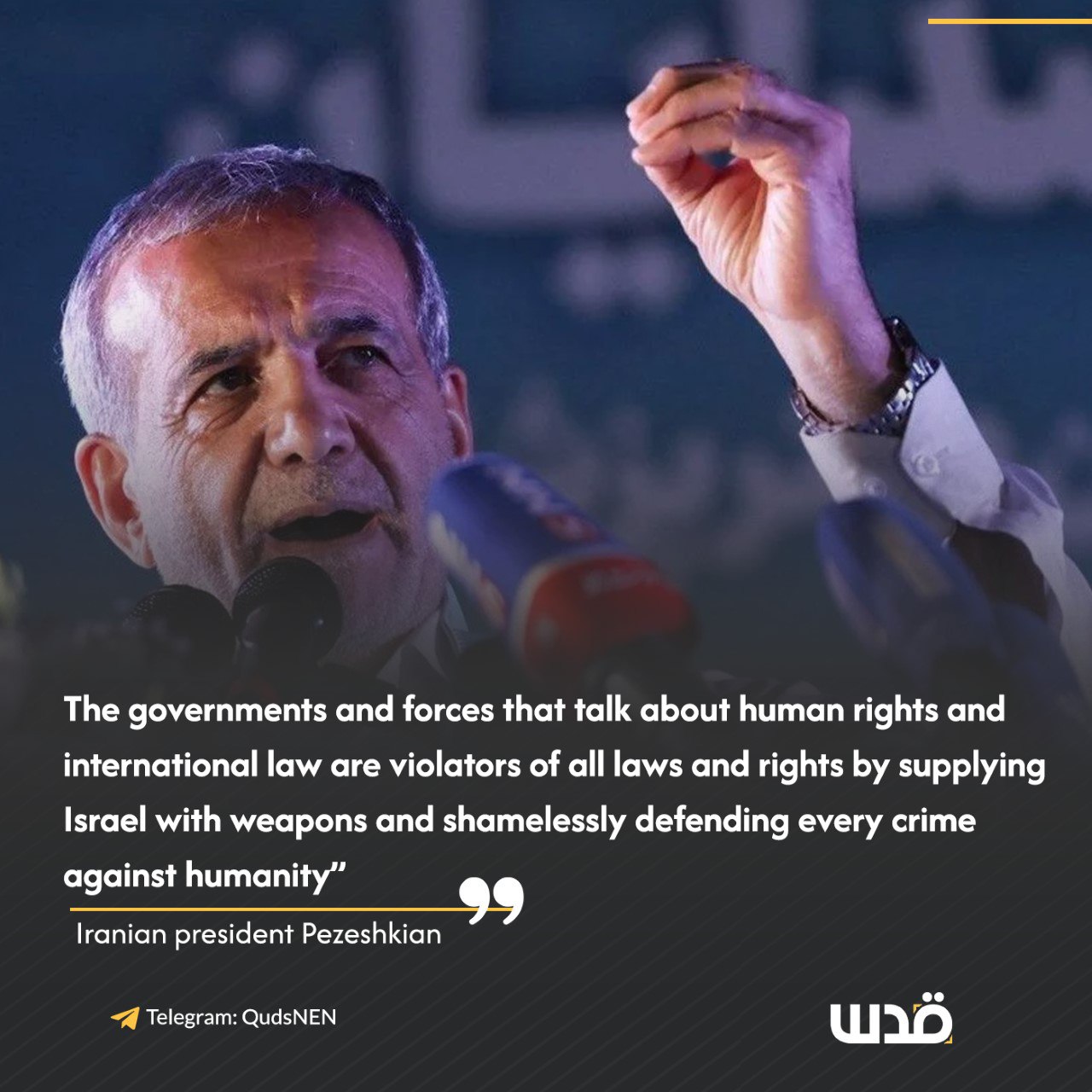Pezeshkian: Iran Will Not be Bullied, Tells Trump to ‘Go to Hell’
One couldn’t help but feel a tinge of pleasure in Iranian President Masoud Pezeshkian lashing out at Donald Trump. Without mincing his words, and certainly not sticking to diplomatic niceties, no doubt taking his cue from the new boss at the White House, Pezeshkian told the US president a few home truths.
Depending on the translation into English from Persian, he basically told the US president to “go to hell”. This is a phrase that is making great headlines all over the world for its intensity and meaning.
On its part, the social media is having a field day at Pezeshkian, to say the least “forthright” speech at the Iran Entrepreneurs Forum in which he lambasted Trump for the way he is called on Tehran to heed and either go back to the nuclear deal or face the mighty military of the United States.
He didn’t at all like how Trump framed his appeal for Iran to get back to the negotiations table when he spoke nonchalantly that “there are two ways Iran can be handled: militarily or make a deal.”
In turn, Pezeshkian and the Iranian leadership starting from Ayatollah Seyed Ali Khamenei to Foreign Minister Abbas Araghchi became particularly angry at this approach as Trump is now seeking to revive the 2015 Iran Nuclear Deal which he muzzled out of in 2018 during his first administration as one of the latest pieces of the US global, foreign and security policies.
Though denied by Iran, Trump said he sent a letter to Ayatollah Khamenei in which he told them to agree to a deal or face the military wrath of the United States with extended crippling sanctions on Iran’s oil sector, its exports and the shutting off of its global financing.
The subsequent utterings on the international media about Trump and his latest obsession in “controlling” the nuclear file of Iran has created a knee-jerk reaction among the country’s leadership which saw what Trump was doing was “coersive diktates” and imposition of maximalists pressure which today, they are in no mood to pay heed to because of so many factors including its ballistic missile attacks on Israel last October where up to 250 missiles landed on different sites of the country.
Pezeshkian, dubbed as a reformist president and one who is willing to listen, was startlingly critical at the way Trump invited, more like dictating, to get back to the nuclear deal under vastly different and stringent negotiating terms, and ones that would strip Iran of its nuclear aspirations and impose an additional and an even tougher monitoring and observation regime than the previously deal allowed for which Pezeshkian and other leaders rejected.
In plain, straight talking, again no doubt like Trump’s abrasive approach Pezeshkian leading a country on the threshold of becoming a nuclear power as many analysts suggest with more than 60 percent uranium enrichment capacity, said Iran would not negotiate with Washington while while being threatened. He essentially delivered the ultimate stab that the US president can “do whatever the hell you want”, as reported by the Iranian state media, Tuesday.
”It is unacceptable for us that they [the U.S.] give orders and make threats. I won’t even negotiate with you. Do whatever the hell you want”, Pezeshkian repeated at the behest of a country long standing up to the United States and to maintain cold and freezing relations with the United States.
Further, and to say the least, this was the ultimate snub delivered by the Iranian president who was in no mood to listen to the antics of the new US president wishing to wield his rhetorical stick around the world and was not afraid of telling him so.
Pezeshkian was especially irked him by the way Trump met the Ukraine President Volodymyr Zelensky in the White House recently calling it disgraceful and shameful and Iran would not listen to such talk as a way of moving the negotiations forward.
It was Trump, who initially pulled out of the Iran deal officially called Joint Comprehensive Plan of Action (JCPOA) signed by the then Barack Obama administration with international backing of five major UN powers including Russia, China, Britain, France and Germany in 2015.
Then Trump said the deal was a bad one and wanted to re-negotiate. But since taking the USA out of the deal, Tehran no longer found it necessary to continue to observe the strict regime imposed by JCPOA on Iranian nuclear facilities which slowly started to top up its uranium enrichment levels to where it is today.
As well, Pezeshkian was echoing the words of Ayatollah Khamenei who earlier rejected the prospects of direct talks, calling them neither “smart, wise nor honorable” while saying that Iran will not be bullied into negotiations.
This was seconded by Iran’s Foreign Minister Araghchi who made it perfectly clear on his X account that “we will NOT negotiate under pressure and negotiation, We will NOT even consider it, no matter what the subject might be, whilst emphasizing that dialogue must be rooted in mutual respect, not threats.”
For all the outward talk however, Iranian officials have stressed as they did so in the past that the country’s nuclear program has been always for peaceful purposes and is open about the country’s nuclear reactors and plants as proved in its current consultation with the different world powers of the United Nations Security Council.
The above-analysis is written by Dr Marwan Asmar, chief editor of the crossfirearabia.com website.













